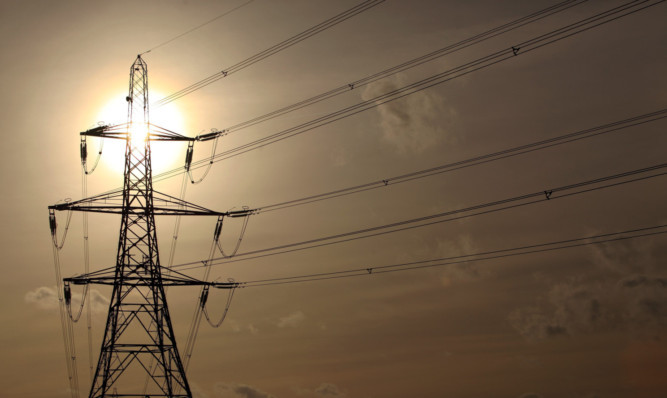Britain’s big six energy companies will face fines unless they open up the electricity market to competition from smaller independent rivals, under proposals by the regulator.
Ofgem outlined a series of measures designed to “break the stranglehold” of the firms which include Perth-based SSE and Glasgow’s Scottish Power in a bid to push down prices for hard-pressed households.
Energy Secretary Ed Davey said the Government is ready to bring in new laws should the new measures be “delayed or frustrated”.
The regulator says it wants to create a more level playing field for independent rivals to buy and sell power. Smaller suppliers include the likes of Co-operative Energy, Ecotricity, Ebico and First Utility.
Under its plan the big six British Gas, EDF, E.ON, NPower, Scottish Power and SSE cannot refuse reasonable requests from small suppliers to buy electricity.
They have also been told they must sell power to the smaller companies at a fair price and negotiate fairly at all times.
The big companies will be given deadlines for acknowledging and responding to requests.
Ofgem said the rules would also apply to the largest independent power generators, Drax Power and GDF Suez.
In addition, the big six companies will have to post prices at which they will buy and sell power for up to two years in advance.
The regulator said that while the major companies were selling at least 30% of their output in the market for short-term energy use, there was still not enough trading of power for use in the “forward market” dealing with energy use further ahead.
An obligation to post prices at which they buy power two years in advance would “make it far easier for independent suppliers to buy power for their customers”, Ofgem said.
The proposals come ahead of a statutory consultation this autumn, with the changes expected to come into effect next year.
Andrew Wright, senior partner for markets at Ofgem, said: “Our aim is to improve consumer confidence and choice by putting strong pressure on prices through increased competition in the energy market.
“Ofgem’s proposals will break the stranglehold of the big six in the retail market and create a more level playing field for independent suppliers, who will get a fair deal when they want to buy and sell power up to two years ahead.”
The regulator also says the rules on price transparency will help power generator owners decide when to invest in new power stations or carry out maintenance on existing ones.
Mr Davey said: “An increased role and level playing field for independent suppliers and generators is precisely what will help drive the competition that delivers better value for consumers and businesses.
“Independent suppliers will have greater access to the power generated by the big six and other large power producers, enabling them to purchase and deliver cheaper energy to consumers.
“Ofgem’s proposals to increase transparency in the way electricity is traded will give independent generators a foothold in the UK energy market and encourage new players to invest.
“I encourage companies to work with Ofgem to implement these proposals as swiftly as possible. Government stands ready to use the Energy Bill to take necessary measures to improve energy market liquidity should Ofgem’s proposals be delayed or frustrated.”
